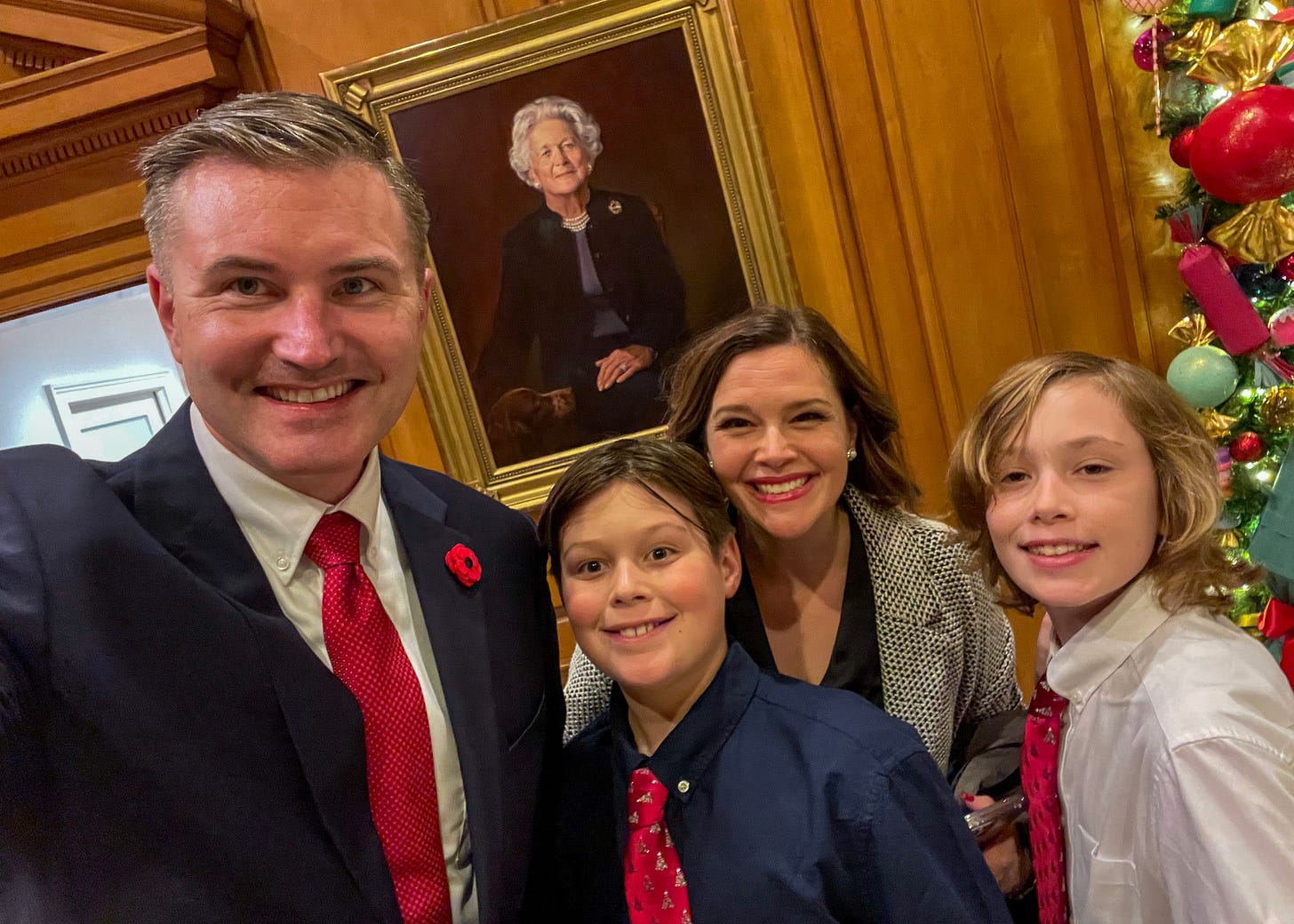"9/11 happened, and all of a sudden everything changed," said Erin Whitehead, who spent decades as a military spouse while her husband pursued a career in the Marine Corps. "It became a much different life, much harder."
The surge of military activity that followed the attack on New York and Washington, D.C., leading to years of conflict in the Middle East would strain families as deployments and casualties mounted. But this national tragedy also sparked a sense of purpose for those in the military community.
"We'd all go to different people's houses for dinner every night because we needed to be together. It made it survivable," said Whitehead. "We became family."
Before marrying my husband, I imagined the military was what I saw in movies -- soldiers clutching rifles, ready to storm a beachhead, terrified but in it together. I knew the lifestyle was hard, but I had no idea that as a military spouse, I too would undergo a parallel bonding experience on the home front. And in speaking to others, it seemed my experience was not unique. Our shared suffering bonds military spouses to each other and the military lifestyle, if we let it.
Research shows that military spouses who feel a sense of belonging within the military community have a greater sense of overall well-being. However, building these sustaining relationships is challenging for military families who have to move away from relatives and friends and leave new connections every two to three years.
While basic training and deployments help service members develop strong, new ties and feelings of connectedness, military spouses are left on their own to find a sense of belonging.
"None of this stuff had been scripted," said Kathleen Palmer, an Army spouse who was living in Germany after 9/11.
Although there was a push to support families in the years following Sept. 11, the existing infrastructure was not prepared to deal with the post-9/11 operations tempo that saw troops away from home for extended periods. Palmer was lucky that a more senior Army spouse took it upon herself to build a community at the German base.
"There was nothing," she recalled. "And so, she actually reached out and … brought in every spouse no matter what, and that, to me, set the tone."
Palmer, who has moved 15 times over the 27 years she has been an Army spouse, said that often only other military spouses understand the pressures.
"At the end of the day, very few people are walking in our shoes, and I think that we have to really embrace everybody who's in the shoes," she said.
When that community isn't easily accessible to military families, it can severely increase the burden of service.

Go Beyond the Article
I really struggled to write this article, not because I don’t believe military life is worth it, but because of how I expected it to be received. I often write about the things that are wrong with the community. I do so not to complain, but to elevate the voices of those who have historically felt marginalized. They are not marginalized for any other reason than access. Often we hear from those who are in leadership and their spouses. These leaders often like the military lifestyle, because for many complex reasons, they have chosen to remain in it. I write about those who don’t have access to balance things out. However, to maintain balance I knew this article was one I needed to write.
Historically the military community has only highlighted the good, zooming in on accessible silver linings. Gray is uncomfortable. In writing this, I knew some of my readers would not want to focus on the good because they are hurting. Other readers want to focus on the good because that helps them get through the hard. There needs to be space for both. We need to get better at talking about it all, good and bad. Something can be terrible and beautiful at the same time.
A perfect example of this are the amazing women (there are male surviving spouses - but I didn’t interview any) I met while reporting on the “widow’s tax”. They built a community none of them wanted to be a part of. They were bonded over the death of their loved ones and fought shoulder-to-shoulder so that those who would follow them would receive earned death benefits without having to fight. Their stories were heartbreaking, but their unity was astounding and inspirational, an inspiration that can only be born out of pain.
Why is it we can see the beauty in the pain of death, but not the inconvenience of life?
That was what I wanted from this article. To make it normal to see the good and the bad of this lifestyle because to hide it is to minimize it.
Become a paid subscriber to read what did not make it into the article…
Keep reading with a 7-day free trial
Subscribe to Dinner Table Conversations to keep reading this post and get 7 days of free access to the full post archives.




